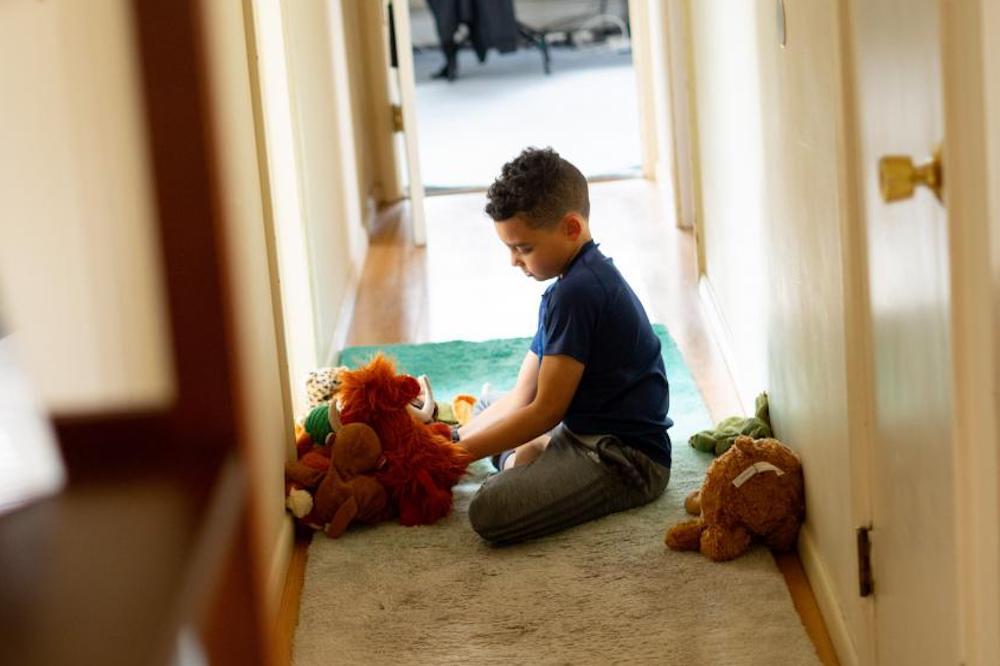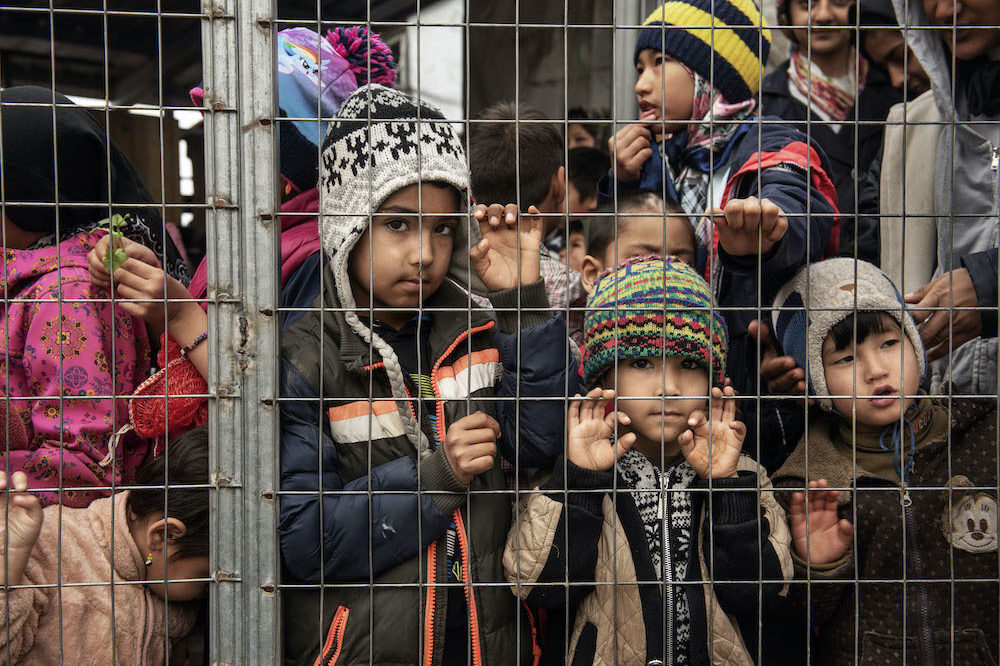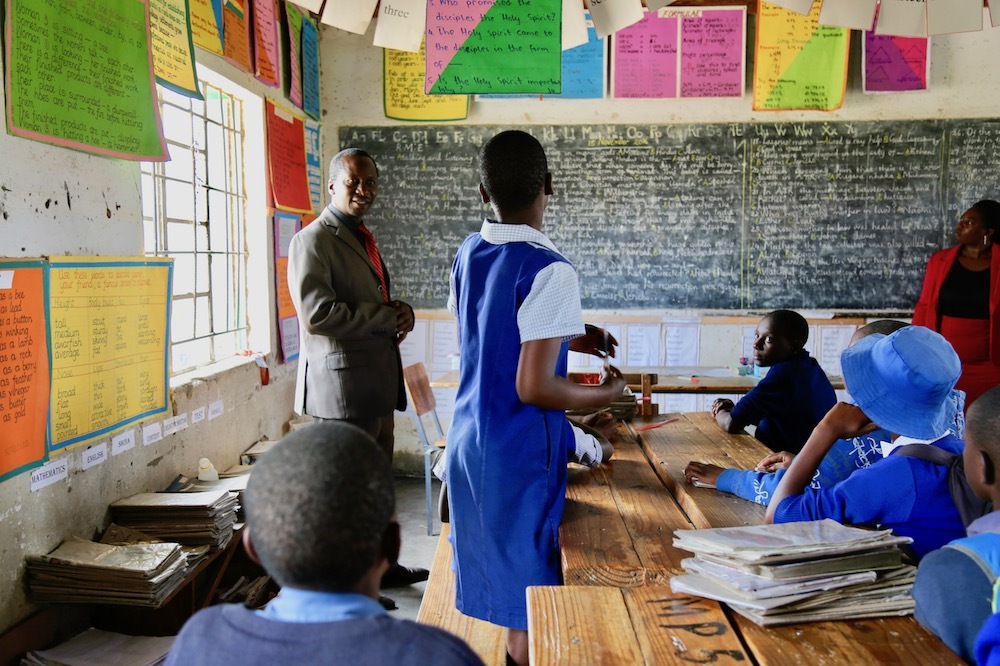Five things you need to know this week about global education

As countries shut down schools again, there is a warning about the growing consequences of disrupted education for hundreds of millions of children.
Millions still missing out on school
Nationwide classroom closures are still disrupting the education of one in three schoolchildren around the world, a report has revealed.
More than 570 million students are currently affected across 30 countries – but that number is likely to increase as more European nations begin to close schools again because of a second wave of Covid-19 cases.
The report from UNICEF, released to mark World Children’s Day today, outlines the dire and growing consequences for children as the pandemic drags on. It also revealed that:
- 265 million children were still missing out on school meals in October
- About 30% of schoolchildren do not have the technology for remote learning at home or were not reached by remote lessons
- At least 40 million children have missed out on early childhood care and education
The report – Averting a Lost COVID Generation – said: “Children and schools are not the main drivers of the epidemic across countries. Evidence shows that the net benefits of keeping schools open outweigh the costs of closing them. Data from 191 countries show no consistent association between school reopening status and Covid-19 infection rates.”
It called for urgent global action to respond and recover, including countries ensuring that every child learns by closing the digital divide between those with access to technology and those without.
UNICEF Executive Director Henrietta Fore said: “This is not about a return to the way things were. Children will never accept a return to ‘normal’ after the pandemic because ‘normal’ was never good enough.”
Virus spikes cause schools to shut again

Children in Greece (like these refugees in the Aegean islands) and Turkey are set to miss out on more education due to a second lockdown (UNICEF / Alessio Romenzi)
Greek and Turkey have shut down schools again because of a spike in Covid-19 cases. Greek authorities announced nurseries and primary schools will close until the end of November as part of a second nationwide lockdown. Distance learning has already been implemented in secondary schools and universities.
In Turkey, schools will only provide online education for the rest of the year. Classes had gradually begun to reopen from September – but they will remain shut after the autumn break.
Sweden’s high schools will be able to conduct more distance learning from next week to help control the pandemic. Most schools have stayed open, although high schools and universities switched to online classes in the spring. Education Minister Anna Ekstrom said: “The change means that high schools can switch, partly, to online and distance learning if it is necessary to avoid overcrowding on school premises.”
New York City’s school district, the largest in the United States, halted in-person learning from yesterday as Covid-19 cases soar. Schools had been following a staggered system of classroom instruction and online learning since September.
Zimbabwe teachers end strike

Zimbabwean teachers have accepted a 41% pay rise (GPE)
Zimbabwe’s teachers have accepted a government offer to raise their salaries by at least 41% and will end a strike that started in September when schools re-opened for end-of-year examinations.
The government shut schools in March to prevent the spread of Covid-19. Although students gradually returned to class from September, teachers refused to go back to work, saying their pay had been eroded by inflation of 471.25%.
Meanwhile, authorities have closed a boarding school in Matabeleland North province after at least 100 students tested positive for coronavirus. Teachers unions have complained that most public schools are not adequately equipped to prevent the spread of the virus, which the government denies.
One of Zimbabwe’s main education challenges is a dropout rate of more than 20% from lower secondary schools, which particularly affects the poorer parts of the country.
Sudan's biggest education project
[NEWS] GPE is working with the @WorldBank to boost reforms and quality education in #Sudan with a $61.5 million grant to sustain and improve basic education for children, w/significant support to teachers, schools and communities. https://t.co/xhnrRIfgWI
— Global Partnership for Education (@GPforEducation) November 18, 2020
The largest education financing project in Sudan will help to sustain and improve basic schooling for millions of children.
Six million students will be provided with textbooks, reading materials and reading support programmes. The project will also give significant support to teachers, schools and communities, while strengthening the school systems.
The World Bank Board of Directors approved the programme, which is supported by a $61.5 million grant from the Global Partnership for Education. It will also support efforts to improve student enrolment, retention and reading proficiency in the early primary grades and will target disadvantaged schools.
“This project comes in an opportune time because we are in the middle of a very difficult economic situation,” said Mohamed Alamin Altoum, Sudan’s Minister of Education.
Fears of LGBT+ students

Violence and discrimination present a significant barrier to education (UN Photo)
Almost half of LGBT+ pupils in England do not feel safe at school – with more than a third saying homophobic and transphobic bullying is common, a study has shown.
Gay, bisexual and transgender secondary school students were twice as likely (42%) to report such bullying compared to non-LGBT+ pupils, according to the survey of more than 6,000 students at 90 schools by LGBT+ education charity Diversity Role Models.
“Just let that sink in. The place you are relying upon to prepare you for the world… is not currently a safe space if you are LGBT+,” said television presenter Clare Balding in a foreword to the report.
There is a section dedicated to Education and the LGBTQ+ Community in The Key, Theirworld’s new comprehensive information resource which helps you to advocate for education.